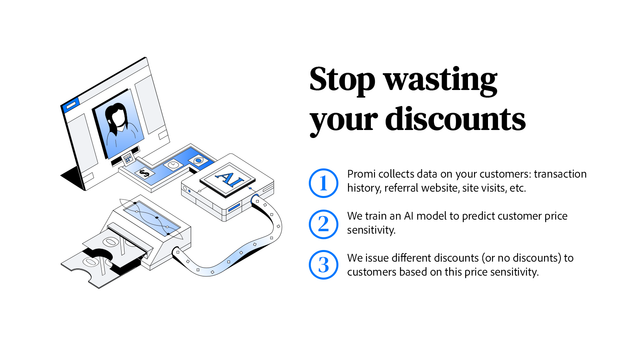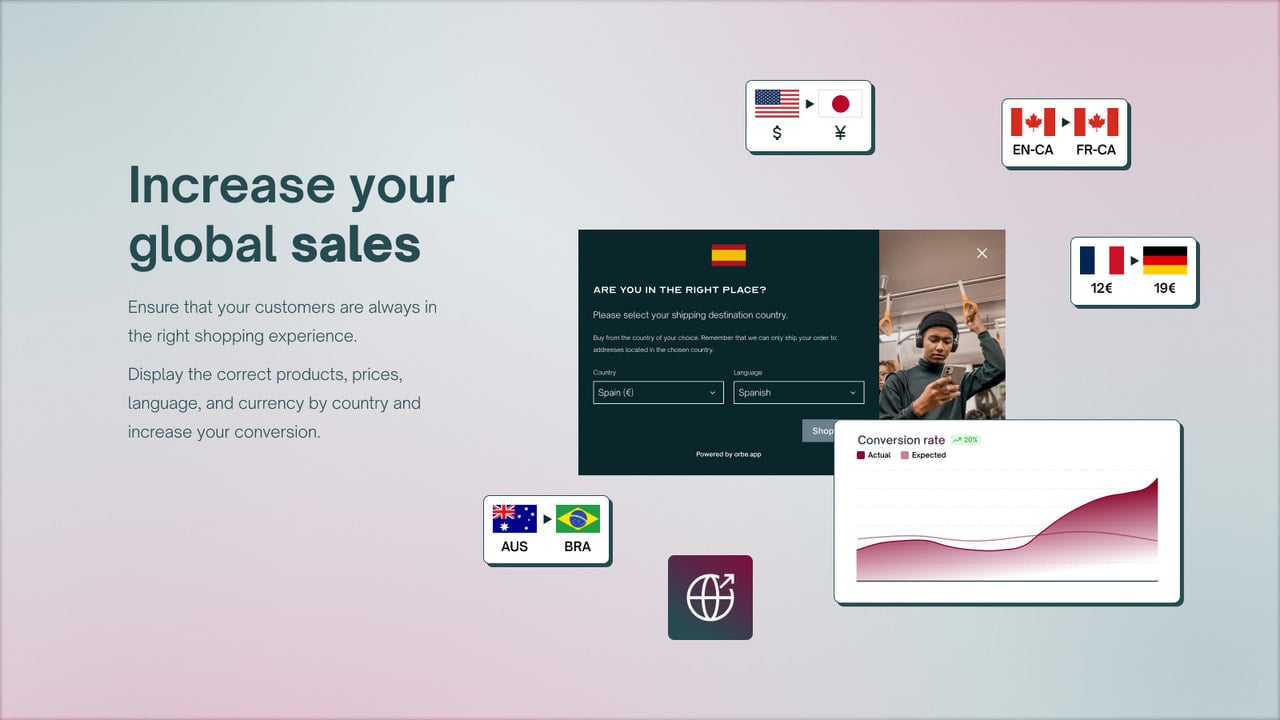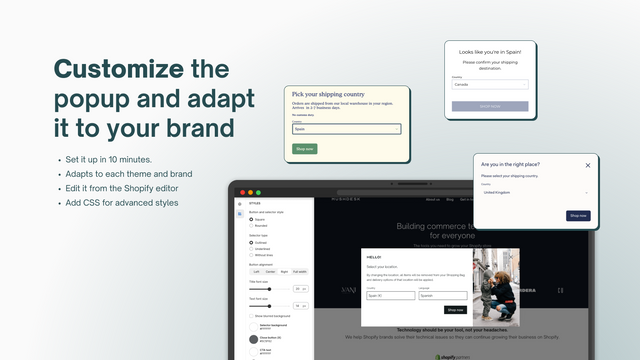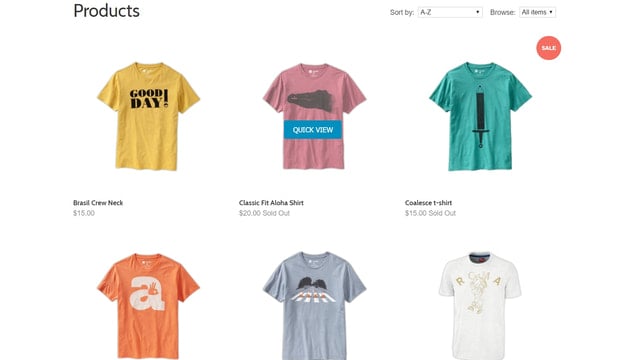In today's digital age, having a strong online presence is crucial for the success of any business. If you're running a Shopify store, one of the key elements to focus on is search engine optimization (SEO). By implementing effective SEO techniques, you can improve your store's visibility in search engine results pages (SERPs) and attract more organic traffic. In this article, we will explore the various ways to optimize your Shopify store's SEO and boost your online presence.
Understanding the Basics of SEO
Before diving into the specifics, let's start by understanding what SEO is and why it is important. SEO refers to a set of strategies and techniques aimed at improving a website's visibility in search engine results. When a user searches for a particular keyword or phrase, search engines like Google analyze various factors to determine which websites are most relevant to the query. By optimizing your Shopify store for SEO, you can increase your chances of appearing higher in SERPs and attracting more organic traffic to your website.
What is SEO and Why is it Important?
SEO, or search engine optimization, is the process of optimizing your website to improve its visibility and rankings in search engine results. When your Shopify store is properly optimized for SEO, it becomes more likely to appear in the top search results when potential customers search for relevant keywords or phrases.
Having a high ranking on search engines is important because the majority of online experiences start with a search engine. Research shows that users are more likely to click on the top results and rarely go beyond the first page. Therefore, if your Shopify store doesn't appear on the first page, you're missing out on valuable organic traffic and potential customers.
But why is SEO important beyond just appearing on the first page of search results? Well, SEO helps you reach your target audience effectively. By optimizing your website with relevant keywords and providing valuable content, you can attract users who are actively searching for products or services that you offer. This targeted traffic is more likely to convert into customers, leading to increased sales and revenue for your Shopify store.
How Search Engines Work
Search engines use complex algorithms to analyze websites and determine their relevance to specific search queries. Although the exact algorithms are kept secret, search engines consider various factors such as website content, structure, backlinks, and user experience to rank websites. Understanding how search engines work can help you optimize your Shopify store to meet their criteria and improve your chances of ranking higher in search results.
One important factor that search engines consider is the quality and relevance of your website's content. High-quality content that provides valuable information to users is more likely to rank higher in search results. Therefore, it's crucial to create compelling and informative content that aligns with the interests and needs of your target audience.
Another factor that search engines take into account is the structure of your website. A well-organized and easy-to-navigate website is more likely to be ranked higher. This includes having clear and descriptive page titles, using header tags to structure your content, and optimizing your URLs to include relevant keywords.
Backlinks, or links from other websites to yours, also play a significant role in SEO. Search engines view backlinks as a vote of confidence in your website's credibility and authority. The more high-quality backlinks you have, the more likely search engines are to consider your website as a valuable resource and rank it higher in search results.
The Role of Keywords in SEO
Keywords play a crucial role in SEO. These are the words or phrases that users enter into search engines when looking for information, products, or services. By researching and identifying relevant keywords for your Shopify store, you can ensure that your website is optimized with the right terms that users are searching for. Keywords should be strategically incorporated into your store's content to improve its visibility in search engine results.
However, it's important to note that keyword optimization should be done in a natural and user-friendly way. Keyword stuffing, or overusing keywords in an unnatural manner, can actually harm your SEO efforts. Search engines are becoming smarter at detecting keyword stuffing and may penalize websites that engage in this practice. Instead, focus on creating high-quality content that provides value to users and naturally incorporates relevant keywords.
In addition to optimizing your website's content, it's also important to consider other areas where keywords can be utilized. This includes optimizing your meta tags, such as the meta title and meta description, which appear in search engine results. By including relevant keywords in these tags, you can increase the likelihood of users clicking on your website when it appears in search results.
Furthermore, keywords can also be used in your website's URLs, image alt tags, and anchor text for internal and external links. These additional areas of optimization can further enhance your website's visibility and improve its chances of ranking higher in search engine results.
Setting Up Your Shopify Store for SEO
Now that we have a good grasp of the basics, let's focus on setting up your Shopify store for optimal SEO performance. Here are some key steps to take:
Importance of a Well-Structured Shopify Store
A well-structured Shopify store not only improves the user experience but also makes it easier for search engines to crawl and understand your website. Make sure your store has clear and organized categories, subcategories, and product pages. Pay attention to the navigation menu and ensure that users can easily find what they're looking for.
Optimizing Your Shopify Store's URL Structure
Your Shopify store's URL structure should be clean and descriptive. Instead of using generic URLs like "www.yourstore.com/product123," opt for URLs that include relevant keywords or product names. This helps search engines understand the content of the page and improves your chances of ranking higher in search results.
Utilizing Shopify's SEO Features
Shopify offers built-in SEO features that can help optimize your store. Make use of these features, such as meta tags, title tags, and alt text for images. Customize these elements for each page to include relevant keywords and descriptions. Additionally, leverage Shopify's sitemap feature to ensure search engines can easily crawl and index your site.
Keyword Research for Your Shopify Store
Keyword research is a critical aspect of SEO optimization for your Shopify store. By identifying the right keywords, you can create content that aligns with what your target audience is searching for. Here's how to effectively conduct keyword research:
The Importance of Keyword Research
Keyword research helps you understand the terms and phrases your target audience uses when searching for products or services similar to what you offer. By incorporating these keywords into your content, you can increase the chances of your Shopify store appearing in relevant search results.
Tools for Effective Keyword Research
There are several keyword research tools available that can help you identify relevant keywords for your Shopify store. Tools like Google Keyword Planner, SEMrush, and Moz's Keyword Explorer provide insights into search volume, competition, and related keywords. Utilize these tools to gather a list of keywords that align with your store's offerings.
Implementing Keywords in Your Shopify Store
Once you have a list of relevant keywords, it's time to strategically incorporate them into your Shopify store. Optimize your product titles, descriptions, headers, and meta tags with these keywords. However, remember to prioritize creating valuable content for your audience over keyword stuffing. Aim for a natural and engaging flow of keywords throughout your store's content.
On-Page SEO Techniques for Shopify
In addition to keyword optimization, there are other on-page SEO techniques that can enhance your Shopify store's visibility in search results.
Optimizing Product Descriptions
When writing product descriptions for your Shopify store, focus on creating unique and compelling content. Include relevant keywords naturally within the description, but also provide detailed information about the product's features, benefits, and usage. High-quality and informative product descriptions not only improve your SEO but also help persuade potential customers to make a purchase.
The Role of Meta Descriptions
Meta descriptions are short snippets that appear below the title tag in search results. While they don't directly impact SEO rankings, they play a crucial role in enticing users to click on your Shopify store. Craft compelling meta descriptions that include relevant keywords and a concise description of what your store offers. Make them enticing enough to encourage users to click through and explore your website further.
Importance of Image Alt Text
Images are essential for enhancing the visual appeal of your Shopify store. However, search engines cannot directly interpret images. Providing alt text (alternative text) for your images helps search engines understand what the image is about. Remember to include relevant keywords in your alt text, which improves the chances of your images appearing in image search results and potentially driving more traffic to your store.
By implementing these SEO optimization strategies for your Shopify store, you can improve your online visibility, attract more organic traffic, and increase the chances of converting visitors into paying customers. Remember to regularly monitor your store's performance, analyze keyword rankings, and make adjustments as necessary. Stay updated on SEO best practices and adapt your strategies to ever-evolving search engine algorithms for long-term success.
With careful planning and execution, your Shopify store can become a powerful online platform that drives business growth and success.
Ready to take your Shopify store's SEO to the next level? Let Owlfred, your wise and friendly guide from OwlMix, lead the way! With a curated directory of innovative Shopify apps, OwlMix is your one-stop destination to enhance your online business. From advertising to email marketing, inventory sync to marketing analytics, you'll find the perfect app to optimize your store and boost your sales. Don't miss out on the chance to elevate your e-commerce experience. Find your next Shopify app today and watch your business soar with Owlfred's expert recommendations!

















